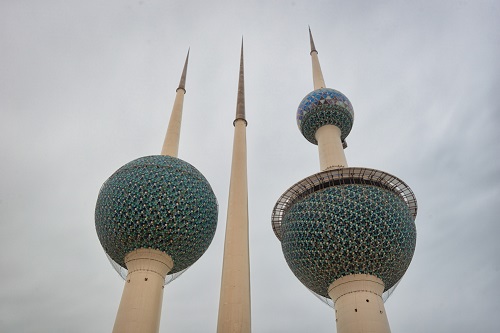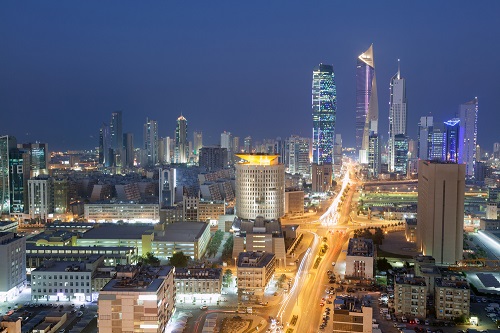Both public and private sector healthcare in Kuwait is of a high standard. The Kuwaiti government, via the Ministry of Health and other organisations (such as the Public Authority for Social Security), are investing in some world class new facilities. For example, at the Al Sabah Specialty Medical Area in Kuwait City, it is building a new maternity hospital.
The Public Authority for Social Security is currently establishing its own medical cities. It is also improving digital infrastructure, with the establishment of an e-link between healthcare centres and hospitals.
If you are resident in the country, you should have little difficulty in accessing good quality healthcare. However, be aware that access to facilities for expats is changing.
Public healthcare in Kuwait
Kuwait currently spends around 4% of its GDP on healthcare. The public sector is the primary driver of healthcare expenditure, accounting for 84% of the roughly KD 2.5 billion ($8.23 billion) spent per annum. Mortality rates are comparable with those of other highly developed countries, with 2.7/1000 adult deaths and 8.1/1000 infant deaths (for live births).
Rates of non-communicable diseases, such as obesity and diabetes, are extremely high. They constitute a large percentage of the country’s disease burden. Hitherto, however, investment has been in new facilities and infrastructure, as well as the expansion of existing facilities, rather than in preventative health campaigns. More effort may be needed to address these problems.

The system has experienced a degree of scandal, with the Overseas Medical Programme (funding medical tourism for Kuwaitis in need of treatment) coming under fire, due to alleged abuses. This does not, however, affect expats, who have not been eligible for the programme.
The 2035 New Kuwait Vision is designed to implement hybrid healthcare and digitised systems. In recent years, local Kuwaitis have essentially been competing for public healthcare access. This is due to the high number of overseas workers in the country, who make up around 7% of the population. Medical tourism has also been an issue, with expats availing themselves of the high quality public medical care in Kuwait on visitor’s visas. One report counted 620,000 visitors using the public health system without paying any charges.
The authorities are now making changes, so that expats can no longer use public healthcare so extensively. They are building a number of private hospitals for expats and overseas visitors, known as ‘Dhaman’ centres. The first one of these came online in 2019, and there are more in the pipeline.
At the time of writing, expats can still access some public healthcare, but it is becoming increasingly restricted. Some clinics now offer Kuwaiti-only appointment slots. As an expat, you will also have to pay higher medical fees.
The growth of the private sector is having a knock-on effect on the public sector. There is an increasing shortage of doctors, as more medics move into the private sector.
Private healthcare in Kuwait
Once the new scheme has come fully online, as an expat, you will have a choice between private clinics and the Dhaman public/private facilities.
Dhaman, the Health Assurance Hospitals Company, was established by ministerial decree, as part of the development plan set forth for the State of Kuwait. It is structured as a public-private-partnership (PPP) entity, regulated by the Kuwait Authority for Partnership Projects (KAPP). It has pledged capital of KD 230 million (Social Security at 24%, Arabi Holding Group at 26%, and 50% of shares to be allocated to Kuwaiti nationals).
Dhaman hospitals will be located in three major governorates: Al Ahmadi, Al Jahra, and Al Farwaniya. They will offer services, such as:
- Surgery
- Internal medicine
- Paediatrics
- Operating rooms
- A&E
- Central laboratories
- Radiology
Dhaman will also offer primary care services, including:
- Health promotion
- Disease prevention
- Health maintenance
- Counselling
- Patient education
- Diagnosis
- Treatment of acute and chronic illnesses

The new Dhaman complex in Hawally offers 20 clinics, covering:
- Family medicine
- Paediatrics
- Preventive services
- Health education
- Consultation,
- Acute and chronic diseases
- Dental services
- Digital x-ray
- Ultrasound
- Laboratory and pharmaceutical services
Dhaman centres will not cost much more than the public sector, although a little more than the current public cost of KWD 2 to KWD 5 (US$6 to US$16). Laboratory, radiology, pharmacy and some other basic tests will be free. Hawally is, however, charging private sector prices at the moment.
The relationship between Dhaman and other insurance companies has not yet been clarified. The programme itself will operate as a government-run insurance scheme. Premium for the cover will be set at KD130 (US$428) per year, but expats may choose to take out private health coverage as well. It is not yet clear quite how the new scheme will work, and it has been controversial. Keep an eye on the news for information about any changes.
Other big new projects are being implemented as well, such as the Kuwait Children’s Hospital (KCH), with the aim of delivering high quality tertiary paediatric care. This $544 million joint venture intends to provide 792 beds on a site in the Al-Sabah Health Region. The beds will be dedicated to neonatal intensive care, plus there will be 30 operating rooms and seven CT scanners. The project is due for completion in 2023.
Also due for completion in 2023 is a hospital in the new Sabah Al-Ahmad residential area, located in the southern end of Kuwait. This is a Ministry of Health project dedicated to dialysis, physiotherapy and surgical operations, and it will have an outpatient department.
Overall, therefore, you will find plenty of high quality medical provision during your stay in Kuwait.

